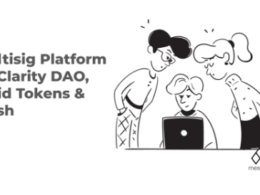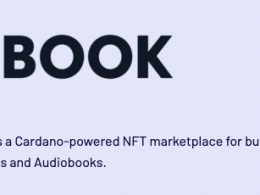Blockchain has captured global attention for its potential to fundamentally transform systems across finance, business, governance and more. Underpinning this technology is the pioneering work of blockchain projects like Cardano – an open-source public blockchain protocol founded by Ethereum co-creator Charles Hoskinson.
Built on a research-driven approach, Cardano aims to deliver decentralized solutions that balance the needs of users with regulatory oversight. This article provides an in-depth look at how Cardano’s technological innovations are priming it to disrupt the healthcare and supply chain industries.
We explore the deficiencies of current systems, how Cardano’s design overcomes these limitations, and the immense benefits its blockchain solutions can unlock for patients, medical providers, producers, retailers, and consumers worldwide.
Part I – Transforming Modern Healthcare with Blockchain
While healthcare has seen enormous progress, central systemic pitfalls persist around data control, quality, and coordination. Patients struggle to consolidate records spread across disjointed providers. Billing fraud and counterfeit drugs undermine trust. Supply chains cannot swiftly pinpoint faulty medicines.
Cardano offers a robust decentralized infrastructure to overcome these deeply rooted issues. Its solutions enable patient control over health data sharing while ensuring accuracy through supply chain transparency and immutable records. Cardano allows authorized access across silos to improve care coordination while enhancing accountability.
Cardano’s blockchain-powered network offers the tools to re-architect healthcare as patient-centered, prevention-focused, and founded on credible information flows. As legacy systems have reached their limits in managing security, data rights, and system-wide collaboration, Cardano’s decentralized solutions signal a new era for human-aligned healthcare. By reimagining healthcare from the ground up, Cardano can make healthcare not just advanced, but fundamentally caring, empowering and worthy of trust.
1. Enabling Secure and Interoperable Health Records
Medical records remain woefully fragmented across siloed providers, hindering care coordination. Patients also lack control over their data, jeopardizing privacy. Cardano offers several key advantages:
Encrypted storage of patient records on the blockchain, preventing tampering. Privacy is ensured through patient consent protocols governing data access.
Interoperability between diverse medical systems by employing common health record standards. This reduces duplicated tests and improves continuity of care as patients transition between providers.
Granular patient control over health data sharing. Patients can selectively disclose records to specific entities for customized time periods, revoking access when desired.
Faster medical claims processing and payments with transparent access to patient data and treatment histories. Blockchain’s immutable audit trails help prevent billing fraud and errors.
The ability to integrate diverse health data like doctor’s notes, prescriptions, medical imaging, genetics, lab tests, and wearable device data within unified longitudinal records. This supports preventative care and personalized medicine.
By leveraging Cardano’s layered architecture, patients can benefit from easily accessible and shareable medical records while retaining control over their sensitive personal information.
2. Streamlining Patient Consent and Claims Processing
Obtaining informed patient consent for medical procedures and data sharing is fundamental yet challenging to manage efficiently. Similarly, processing medical claims involves extensive manual paperwork.
Cardano offers a powerful way for patients to control their medical data sharing through blockchain-based consent management. Patients can digitally sign consent agreements, like approving medical record access or tissue sample use for research. These consents become smart contracts recorded immutably on the blockchain.
The key advantage is that consent terms like data expiration and access revocation are automatically executed based on the smart contract code. Patients don’t have to manually track and update their consent status across multiple entities. It is programmatically enforced without reliance on fallible centralized systems.
For example, if a patient grants time-limited access to their medical history for an experimental drug trial, this permission is revoked by the smart contract once the trial concludes. The patient does not have to do anything manually. Cardano’s blockchain enables patient consent to become an automated manifestation of personal data rights and choices. This fosters healthcare based on consent execution rather than consent assumption.
Cardano’s patient consent management capabilities offer significant advantages to healthcare providers. By recording consents like medical procedure approvals as smart contracts on the blockchain, healthcare providers gain immutable proof of consent.
This immediately reduces legal risks and compliance overheads for providers by ensuring they can demonstrate informed consent was obtained, with contractual terms executed automatically via code.
In case of audits or disputes, healthcare providers can also produce complete consent audit trails from the transparent blockchain ledger. This enhances trust and accountability for both patients and healthcare institutions.
By enabling cryptographic proof of consent, Cardano solves major administrative issues for healthcare providers. Legal ambiguities and overheads are reduced while transparency helps providers build patient trust. Healthcare providers are empowered to focus on delivering quality care knowing the blockchain immutably preserves patient consent rights.
Smart contracts automate insurance claim submission and processing based on medical record data availability. Patients are reimbursed faster.Insurers can develop customized smart contract frameworks aligned with their claim verification and payment protocols.
Fewer claim rejections and inquiries through transparent access to patient diagnostic and treatment records. This reduces frustrations for patients and providers.Cardano enables patients to control consent and data sharing while streamlining cumbersome administrative processes – improving overall healthcare experiences.
3. Bolstering Drug Supply Chain Provenance and Quality
First, medications can be tracked from production to pharmacy through immutable ledger entries and supply chain sensors. This enables quality assurance and rapid containment of affected batches if issues arise. Further, patients can verify drug authenticity via QR codes and NFC tags on packaging linked to supply chain data on the blockchain. This prevents dangerous counterfeits from entering the market.
Additionally, anonymized adverse event data enables ongoing pharmacovigilance and drug safety surveillance. On-chain product details also prevent use of expired or recalled medicines through lifecycle tracking. For distributors, real-time supply monitoring and demand forecasting optimize inventory levels and availability.
By coordinating stakeholders through accountability, transparency, and automation, Cardano enables a trusted pharmaceutical supply chain putting patient safety first. Improved visibility, verification, and analytics significantly close gaps that allow substandard and fraudulent medicines to fall through the cracks today.
4. Transforming Clinical Trials and Medical Research
Clinical trials face challenges like patient recruitment and ensuring proper protocols are followed. Meanwhile medical research is hindered by limited data access. Cardano facilitates solutions.
By transparently recording trial processes on the blockchain, adherence to protocols can be immutably demonstrated to improve regulatory approval. Patients also directly permission data access, enabling research institutions to gain expanded datasets for population health insights while preserving privacy. Further, donor funds are accounted for on-chain to validate allocation.
For patients, selective data sharing becomes an engaging act of altruism with retained control over privacy. Researchers gain access to broader, diverse data to uncover fresh medical insights and accelerate discoveries through collaboration.
Overall, Cardano’s decentralized approach expedites medical advancement through immutable trial documentation and voluntary data aggregation. Patients are empowered to advance science on their terms while researchers get tools to unlock new horizons. This realizes a win-win future for better healthcare through ethical data sharing.
Part II – Revolutionizing Supply Chain Management
Global supply chains grapple with issues like waste, fraud, opaque tracking, and inefficient coordination between entities. By fundamentally reimagining supply chain infrastructure, Cardano offers transformative solutions:
1. Establishing Provenance and Combating Counterfeits
Counterfeit goods pose grave risks to consumers and produce immense brand reputation damage. Cardano offers a solution to validate authenticity and origin.
Manufacturers can register products on the blockchain and assign unique identifiers like RFID tags. This makes duplicating authentic goods virtually impossible, as any copies won’t possess recognized registration ledger entries. Consumers can easily verify authenticity by scanning product tags and matching them to supply chain entries.
Further, brands can provide consumers with direct assurance by embedding scannable QR codes on packaging that links to origin details immutably recorded on the blockchain. This identification makes spotting counterfeits effortless even for used goods.
If any quality concerns do emerge, supply chain stakeholders can rapidly identify affected batches by tracing the blockchain’s transparent ledger of manufacturing details, logistics, and maintenance. This containment ability is crucial for recalls and supports root cause analysis for preventative improvements.
Cardano allows brands to credibly signal authenticity to consumers while enhancing visibility across supply partners. By providing the ability to distinguish genuine products in the market, Cardano enables brands to combat potentially hazardous counterfeiting and rebuild consumer trust.
2. Optimizing Inventory and Fulfillment
Legacy inventory systems are plagued by poor visibility and forecasting, leading to excessive waste. Cardano enables ecosystem-wide optimization through connected supply data.
By linking siloed partner systems via the blockchain, comprehensive real-time inventory snapshots can be achieved. Smart contracts automate reorders based on low stock thresholds informed by predictive algorithms. These algorithms accurately factor external data like weather alongside historical demand patterns to forecast restocking needs. Further, sensors provide 24/7 granular inventory visibility down to storage locations.
With end-to-end visibility, Cardano allows dynamically optimal inventory positions across the supply network calculated by algorithms accounting for variability. All partners gain access to shared data for forecasting while retaining ownership of assets.
By connecting fragmented inventory systems, Cardano unlocks unprecedented potential for predictive, automated optimization. Businesses across retail, manufacturing, logistics and more can substantially cut waste by leveraging Cardano’s decentralized visibility and coordination capability.
3. Automating Logistics and Finances
Legacy supply chain systems rely extensively on manual coordination and paper documentation, which hampers efficiency. Cardano offers a solution to seamlessly integrate end-to-end workflows.
Smart contracts on the Cardano blockchain can encode complex logistical rules to digitize processes like production scheduling, order routing, and inventory management. By automating these workflows based on supply data inputs, coordination becomes streamlined. Further, core documentation like purchase orders and invoices can be standardized and exchanged digitally on the blockchain as transactions, eliminating paperwork.
With workflow digitization and documentation streamlining, Cardano enables the automation of payment settlement upon fulfilling predefined contract conditions, reducing financial settlement times from days to near instant. Moreover, by imparting transparency across workflow data, disputes can be minimized through immutable audit trails.
By representing multifaceted logistical and financial workflows in executable smart contract code, Cardano has the capability to completely reshape supply chain coordination. siloed systems, central intermediaries and manual paperwork become relics of the past. Supply chains stand to dramatically gain in efficiency, transparency and cost savings by adopting Cardano’s vision of end-to-end digitized integration.
4. Sustainability and Social Responsibility
Consumers increasingly demand ethically produced goods but lack trustworthy means to verify sustainability claims by brands. Cardano’s blockchain offers a solution to enable accountability.
Certifying bodies can create immutable sustainability credentials by auditing and registering responsible production practices like materials sourcing, carbon emissions, and fair labor policies on the Cardano blockchain. These certifications seamlessly attach to finished products, allowing brands to credibly demonstrate commitment to sustainability without excessive overhead. Further, QR codes on packaging can directly link consumers to verified product sustainability records stored transparently on the blockchain.
Beyond assuring consumers, Cardano also enables collective action by supply chain partners to improve social and ecological standards. By establishing common verifiable benchmarks encoded into smart contracts, the community can coordinate moves to incrementally raise the bar for responsible production practices.
Partners gain visibility into aggregate performance and are incentivized to adopt more sustainable operations. Overall, Cardano allows supply chains to credibly signal sustainability gains to consumers while enabling platform-based collaboration between partners to double down on their commitments to urgent humanitarian and ecological causes.
Cardano’s science-driven approach to leveraging blockchain technology offers immense potential to resolve systemic inefficiencies within healthcare and supply chain management. Through solutions centered around decentralized identity, verifiable data sharing, and smart contract automation, Cardano can ignite transformation.
Patients may soon experience healthcare as a personalized, empowering journey where their privacy is honored while records securely integrate to deliver coordinated care. Supply chains stand to shed opacity and waste by becoming periods of programmatic coordination.
As Cardano rapidly evolves and garners adoption through competitive technology, it may well emerge as the global standard for trusted decentralized operations across major industries. With a robust roadmap and some of blockchain’s finest minds spearheading research, Cardano seems poised to fulfill its ambitious vision for catalyzing change on a global scale.
REFERENCES:
https://coinstats.app/news/cbdzyyw0rq_Potential-use-cases-for-Cardano-in-supply-chain-management/
https://www.mdpi.com/2076-3417/13/2/686
https://forum.cardano.org/t/healthcare-data-on-the-blockchain/63898
https://forms.workday.com/en-us/reports/future-of-healthcare-supply-chain-management/form.html









